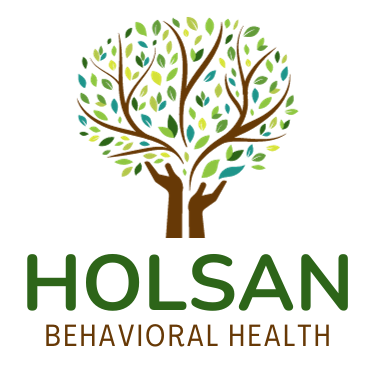Introduction
Imagine waking up each morning feeling as if a heavy fog has settled over your mind, making it difficult to see the path ahead. This is the reality for many people living with depression. It’s more than just feeling sad or having a bad day; it’s a pervasive sense of hopelessness and fatigue that can make even the simplest tasks feel insurmountable. At our practice, we understand the profound impact depression can have on every aspect of life, and we’re here to guide you on the journey towards recovery.
Recognizing the Signs and Symptoms of Depression
When recognizing the signs and symptoms of depression, it’s important to understand that depression manifests differently for each person, making it challenging to identify at times. However, common signs provide a framework for understanding this condition.
- Emotional Signs: Persistent sadness, feelings of emptiness, or a sense of hopelessness are core emotional symptoms. People may feel detached from their usual emotions, experiencing a constant low mood or an inability to find joy in activities they once loved. This is often accompanied by excessive feelings of guilt or worthlessness, where individuals believe they are responsible for situations beyond their control.
- Physical Symptoms: Depression can take a physical toll as well. People may experience significant changes in their appetite, leading to either weight loss or gain. Sleep disturbances are common, ranging from insomnia (difficulty falling asleep or staying asleep) to hypersomnia (excessive sleeping). Chronic fatigue or a lack of energy can make even small tasks feel overwhelming.
- Cognitive and Behavioral Changes: Difficulty concentrating, making decisions, or remembering things can be indicative of depression. Individuals may also withdraw from social activities and isolate themselves, leading to a loss of interest in hobbies, work, or social interactions. This cognitive fog further exacerbates feelings of helplessness and inability to function in daily life.
- Recurrent Thoughts of Death or Suicide: While not everyone with depression will have suicidal thoughts, this can be a serious symptom in more severe cases. It’s critical to be aware of these signs and seek immediate help if they arise.
Depression impacts every aspect of a person’s well-being, including emotional, physical, and cognitive health. Early recognition and seeking help are essential to address and manage depression effectively.
Imagine Sarah, a dedicated professional and loving parent, struggling to get out of bed each morning. Once an avid reader, she now can’t muster the interest to pick up a book. She feels disconnected from her friends and family, overwhelmed by a sense of despair she can’t shake. These are the insidious symptoms of depression, slowly eroding her quality of life.
Coping Strategies
Living with depression can feel like an uphill battle, but there are strategies that can help manage symptoms:
- Stay Connected: Reach out to friends and family. Social support is crucial.
- Physical Activity: Regular exercise can boost your mood and energy levels.
- Healthy Diet: Nutrition plays a vital role in mental health.
- Mindfulness and Relaxation: Practices like yoga and meditation can help reduce stress.
- Set Realistic Goals: Break tasks into smaller steps and celebrate small victories.
Sarah decided to take small steps toward recovery by incorporating these strategies into her life. She started a gentle yoga routine, set up regular coffee dates with friends, and practiced mindfulness before bed. While these changes helped, she realized she needed more support to fully overcome her depression.
When to Seek Professional Help
If depression is impacting your ability to function or causing significant distress, it’s essential to seek professional help. Therapists, counselors, and psychiatrists can provide the support and treatment you need.
The Importance of a Holistic Approach
Effective depression management often requires a comprehensive, individualized treatment plan. This plan should consider the unique needs of each person, addressing both the psychological and physiological aspects of depression. At our practice, we specialize in medication management, understanding that medication can be a vital component of recovery for many individuals.
The Role of Medications in Recovery
Medications, such as antidepressants, play a crucial role in managing depression. They work by balancing chemicals in the brain that influence mood and emotions, providing much-needed relief from symptoms. Antidepressants can help lift the fog of depression, making it easier to engage in daily activities and enjoy life again.
It’s important to remember that medication management should be closely monitored by a healthcare professional. Finding the right medication and dosage can take time, as each person’s response to treatment can vary. At Holsan Behavioral Health, we understand the importance of personalized care and are committed to supporting you every step of the way on your journey to recovery.
Our Commitment to Your Well-Being
At our practice, we are dedicated to providing comprehensive care tailored to your unique needs. We understand that managing depression is a multifaceted process that requires patience and compassion. Our team of experts is here to support you every step of the way, ensuring that your treatment plan is effective and adjusted as needed.
Sarah’s journey toward recovery was not easy, but with the right medication and support, she began to see the light at the end of the tunnel. Her energy returned, her interest in hobbies was rekindled, and she felt a renewed connection with her loved ones. This transformation is a testament to the power of a holistic approach to depression treatment.
Final Thoughts
Navigating depression can present challenges, but with the right strategies and treatment plan, effectively managing symptoms and leading a fulfilling life is achievable. If you or a loved one is experiencing depression, know that support is readily accessible. Reach out to a healthcare professional to explore treatment options and take the first step toward recovery.
For more information or to schedule an appointment, please contact us. Together, we can empower you to take control of your depression and achieve success in your daily life.

